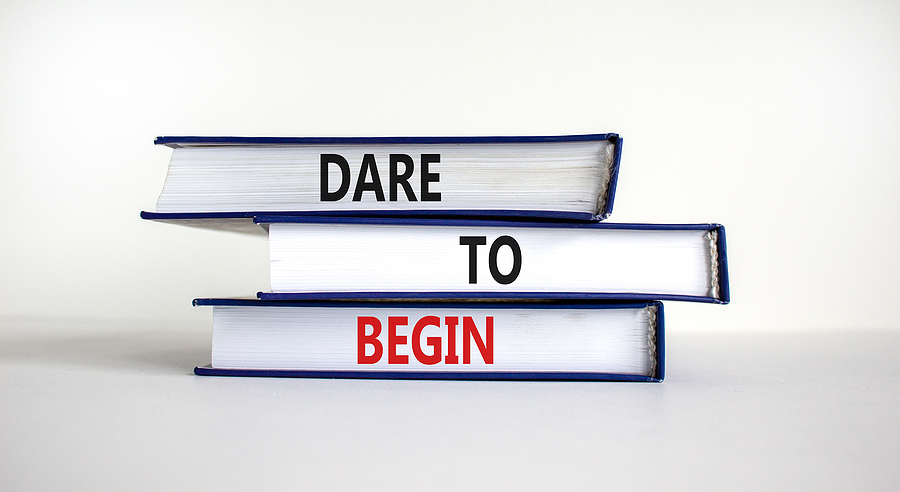I am asked often, “How’d you get your start as a writer?”
The question has many possible answers. I usually say something like, “Well, I was raised as a reader and writer, more or less, in a family of readers and writers.” The first time I saw my name in print was in Highlights magazine when I was seven or eight years old; it wasn’t exactly a byline, but I knew I was a pretty big deal nonetheless. My first check for something I’d written came when I was fifteen; my older brother expressed concern, warning me that cashing the check would compromise my “amateur” status. I cashed it since I had no plans to compete in the writing Olympics.
I took my first writing class while in ministry training and thereafter wrote and published with some regularity, while maintaining a full ministry schedule.
In the late 1980s (yes, Virginia, I was alive way back then), having written regularly for my denomination’s publications, I became a magazine editor. And soon after, I attended my first writers conference as a member of the faculty who had no idea what happened at writers conferences. I wasn’t even sure if they were “writers’ conferences” or “writer’s conferences.” I’m still ambivalent on that point although the style today is “writers conferences.”
Also during that period, since for the first time in my life I had a desk job with actual office hours (which was quite a change from the 24/7/365 pace of pastoral ministry), I wrote a couple of book proposals and sent them to select Christian publishers. I’m not sure those book editors knew how privileged they were, but one of them actually called me. At midday. On my office phone. The kind with a cord.
The caller introduced himself and said, “I’m calling about your book proposal.”
“Hummina hummina?” (I’ve always been careful to present myself professionally).
“I like it. It’s a creative idea, excellent writing, and looks perfect for the teen audience you’ve aimed it at.”
“Um, yeah, um, thanks.” I considered pointing out that he had ended a sentence with a preposition but thought better of it.
“Unfortunately,” the real-live-editor continued, “we’re under contract for a similar book with Josh McDowell, an attempt to take some of his Evidence That Demands a Verdict material to a younger audience. So, I was ready to send it back to you and say, ‘We like it but we can’t publish it.’”
“Huh. Um. Oh.” I could have said more, but that seemed to express it.
“But—and here’s where it gets a little delicate, and I hope you won’t mind if I just come out with my idea—I realized that your style would work very well for something like that. So … would you consider cowriting with Josh McDowell?”
“Hummina, um, heh, well, y’know, I’d be foolish to say no.” I’m sure he was impressed with my sophistication.
He seemed happy to hear that but emphasized that nothing was set at that point. But he promised to pursue the matter with the aforementioned Josh, and we exchanged friendly farewells. I returned the phone to its cradle and bounded from my office like Winnie the Pooh’s friend Tigger, walking and leaping and praising God to my coworkers.
That brief conversation led to a cooperative writing project that culminated in the March 1992 release of Don’t Check Your Brains at the Door by Josh McDowell and Bob Hostetler. (I very generously gave my coauthor top billing; that’s just the kind of guy I am.) The next year, the book was awarded a 1993 Gold Medallion in the youth category by the Evangelical Christian Press Association.
Since then, Josh became a friend and mentor; and he and I coauthored a dozen other books. I’ve also written another few dozen of my own without ever becoming rich or famous. (I have a special gift for poverty and obscurity, apparently.) I’ve written and published fiction and nonfiction, edited and self-edited, slogged and blogged my way through many changes in the writing and publishing world. I’ve worked with some of the finest people on Earth, and I’ve enjoyed almost every bit of it.
That’s the longer answer to “How’d you get your start as a writer?” Along the way, I’ve learned a thing or two. I’ve discovered that many things about writing and publishing are beyond my control. I’ve also learned that the few things I can control are enough. I can be optimistic and tenacious, as I was early on. I can keep learning and developing, as I did way back when. And I can insist that my work always possesses the same critical qualities that gave birth to my first book: a creative idea, excellent writing, and a clear market. That’s easier said than done, of course; but once done, it’s easier sold. And easier bought. And easier read.





“Optimistic and tenacious.” Thank you, Bob, for putting words to my aspirations.
Thanks for the description of your writing journey. I enjoy your posts because they are both instructive and entertaining. That’s a gift from God.
Ooooh, I had that book! So fun to read the story behind it. Thanks for sharing part of your journey.
Bob, if I may, I’d like to share my experience in how not to become a writer.
I was an avid reader, but mostly of older novels (30s-60s), and one day decided to try my hand. The story that resulted (and that I shopped around 2010) was well-liked by the few who read it, but I had not done my research for the market; the style was a bit archaic (I used a lot of adverbs), and more telling, the story fit neither in the Christian sphere (too speculative), nor the mainstream arena (too Christian). The book was published under a traditional-type contract by a now-defunct vanity press, and sold a few copies (don’t know how many; they had ‘accounting problems’).
I did keep at it, writing a couple more stories, one of which is available on Kindle, but the low sales numbers (and my lack of success in developing a platform) led me to believe that there was no real chance of getting representation, much less being published, and I completely lacked the savvy for self-publishing and promotion.
I switched to writing sonnets as blog-post comments, mostly as a joke, but found them useful in what following (and ministry) I do have, and I hold no regrets. (I’d better not regret it…I’ve written about 5000 of the things.)
But you can’t really do two things at once, and getting both discouraged (with, perhaps, good reason) and sidetracked by sonnetry informed my choice, and my future.
I tried my hand at writing
novels, unprepared
for an uphill path of fighting,
and that shows in how I fared.
I didn’t do the research
on how to sell a tale,
and I was left in a lurch
with an aspiration fail.
I went instead to poetry
and though I’ve no regrets,
commercial viability
is not what one, here, gets,
so remember that you will not meet
success upon a dead-end street.
Well said, Andrew. I started out writing without ‘English’ in mind, without a clue as to what emotional wounds and flaws a character should have, without a single idea as to what a ‘market’ really was. Love your story!
Thank you for sharing your story, Andrew. I sense you’ve gained some levity through your experience. A sense of humour and not taking ourselves so seriously sounds like two pearls of wisdom I should put in my pocket daily.
Hey Bob.
At that exact same time, this young advertising copywriter left my job on Michigan Avenue in Chicago writing commercials for Midway Airlines, Kroger, and Corona Beer to work at a little Christian media agency in Wheaton, Illinois.
Later that year, we launched Josh McDowell’s weekly radio program, which I produced for 14 years. Working with Bob Tiede, Dave Bellis, Duane Zook, Jann Saulsberry, Ward Coleman, and others, we promoted your many books co-authored with Josh. So . . . you’re welcome. (Don’t tell anyone, but I pulled “Don’t Check Your Brains at the Door” off the shelf more than once to clarify my own faith questions.)
By the way, I may have gotten fired from that important-sounding job in major marketing advertising which forced me to take that less-impressive job at Domain Communications in 1990. Funny how God works.
Decades later, Josh would write the FOREWORD for three of my own books.
Bob
as always, educational & entertaining. I leave with a laugh (grateful that I do not have coffee in hand that could possibly destroy my computer), and ready to share.
Thank you, Bob. Though I’ve dried my tears my sides still ache from reading this masterpiece of yours. Levity and a sense of humour seem vital in a writer’s toolkit. I will sharpen mine.
What a great story! “Don’t Check Your Brains at the Door” is one of the books I brought home after a Summit Ministries conference in 2000, and I still have it. Great book.
I love reading personal stories; thanks for sharing yours, Bob. It illustrates how God imbues each of us with specific talents, which show up in the choices we make, even at a young age. Congratulations, and may God continue to bless your endeavors.
I love your sense of humor and self-deprecation tendency, Bob. Your posts are always educational and entertaining. Thanks.
Can you clarify “clear market”?
Great and made me laugh.😅😂
Bob, don’t ever leave out your sense of humor in your writing. Thanks for the story. Continue . . .
I am so glad you mentioned the conundrum of writer’s/writers’/writers conference! Guess now I’ll just write “writers conference” and not worry about it.
But seriously…I’ve gotten wrapped around the axle on that one more than once!
Thank you, Bob.